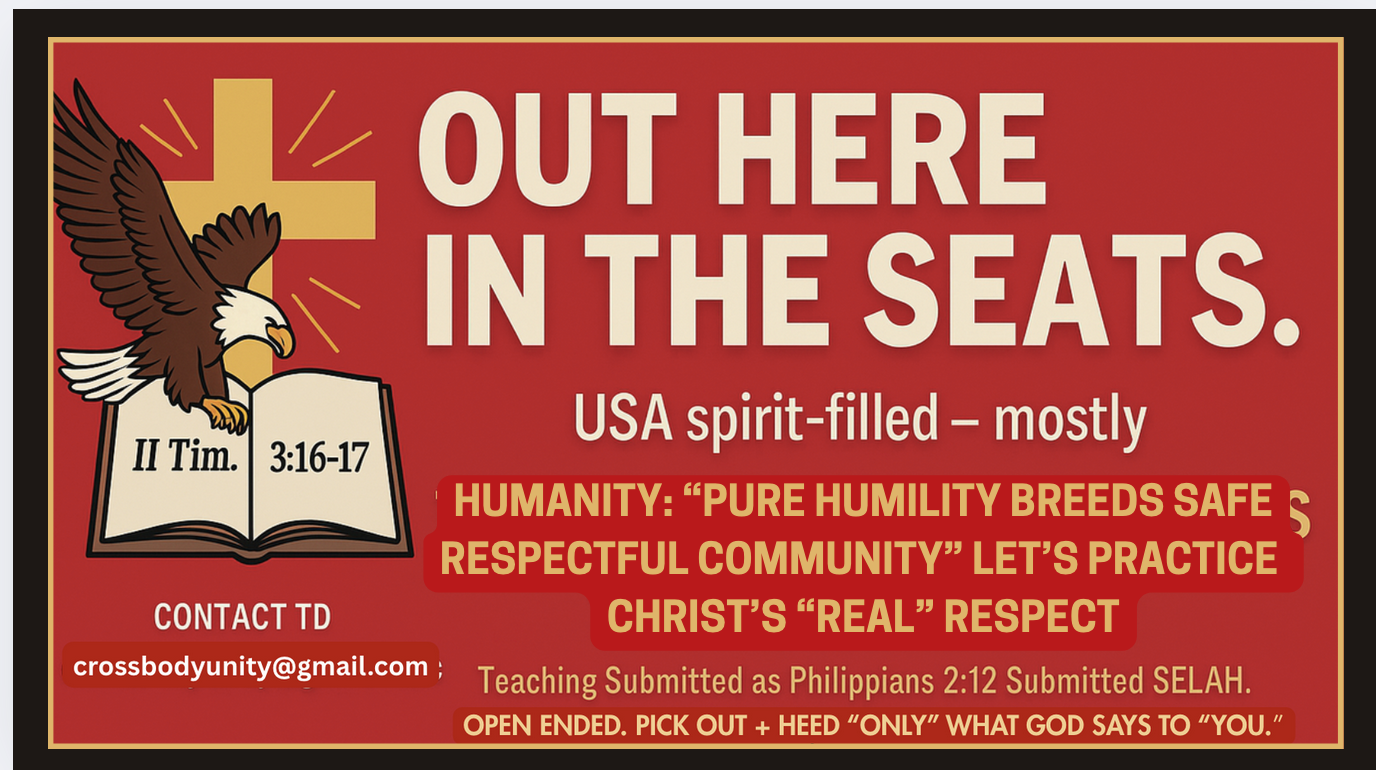FIRST CHURCH: ORGANIC, SELF-GOVERNING
and SPIRIT-LED AUTHORITY
“Mutual submission in the fear of the Lord” Ephesians 5:21 Ministry
(C)2025 Taveau D’Arcy All copyrights reserved under international copyright laws

The earliest Christian community, as established by Christ and shaped through apostolic teaching, embodied a deeply organic and Spirit-led form of ministry and authority. This foundational model was characterized by personal self-governing authority, communal mutual submission, and a profound emphasis on the fruit of the Spirit, especially self-control. This structure nurtured true safety, health, and maturity within both the church and Christian families.
Self-Government as the Root of Healthy Church Authority
The apostle Paul provides the key to understanding authentic spiritual authority in Galatians 5:22–23, where he lists the fruit of the Spirit. Among these virtues, self-control stands as the root of all healthy self-governance:
“But the fruit of the Spirit is love, joy, peace, patience, kindness, goodness, faithfulness, gentleness, and self-control. Against such things, there is no law.” (Galatians 5:22-23)
Self-control is the governing power over one’s own spirit and behavior. It is the foundation of all true leadership and authority because it arises internally by the Spirit, not externally imposed by human power structures. This self-governance builds an environment where the church body and Christian families can flourish in true, safe, and healthy authority without fear or manipulation.
Mutual Submission: The Heart of Church Community
Paul further instructs the church in Ephesians 5:21:
“Submit to one another out of reverence for Christ.” (Ephesians 5:21)
Here, Paul places a radical command at the heart of Christian community: mutual submission. Every believer is a valued minister in the body of Christ. There is no divine pecking order or oppressive hierarchy of “big I” over “little you.” Instead, all contribute vitally in humble service, honoring one another equally.
This emphasis on mutual interdependence and respect fosters a church environment where authority is relational and accountable, not authoritarian or top-down. It safeguards the church from abuses of power and the development of unhealthy clericalism.
The Early Church Model vs. Later Institutional Hierarchy
In sharp contrast, the church underwent profound transformation during the 3rd century, particularly in the Laodicean era** (TD Sees this as a REASON WHY KEY**A wealthy at ease church) marked by the rise of Constantine and the establishment of Christianity as a state religion in Rome and Greece. This era birthed the hierarchical, authoritarian, and top-down church model epitomized by the Orthodox tradition.
-
Authority consolidated under singular titles, such as the Pope or Patriarch, embodying centralized control.
-
The organic, servant-leader model of the first church was morphed into a bureaucratic institution.
-
The communal and mutual ministry of all believers gave way to a clerical elite with exclusive authority.
-
Spiritual authority became associated with titles and offices rather than personal spiritual fruit and self-government.
The Hijacking of Servant Leadership
What began as a fellowship of equals serving one another in love was increasingly hijacked by institutional power. The servant-leader ethos of the New Testament was overshadowed by rigid structures enforced through required teaching and strict control to manage large masses.
This pattern has shaped much of modern Christianity, particularly in Christian media and mega-church culture, where top-down control dominates, often resembling the hierarchical model of the later institutional church rather than the first-century biblical church.
Conclusion
The original Christian church was founded on the principles of self-government empowered by the Spirit’s fruit, especially self-control, and mutual submission among all members without hierarchical domination. This is the root of all true, safe, and healthy church and family authority.
The centralized, authoritarian model that emerged during the 3rd century Laodicean age represents a departure from this biblical ideal. Understanding this distinction challenges modern Christian leaders and media to recover the authentic servant-leadership form of ministry—a ministry deeply rooted in Spirit-led self-governance rather than imposed control.
This article was created with the assistance of AI technology Taveau handcrafted directed, pointed specific questions, that she knew the answers to and asked AI to expound, clarify, use history to prove her right or wrong.
© 2025 Taveau D’Arcy . All rights reserved.
Discover more from TAVEAU CREATIVE LEADERSHIP: THE MINISTRY AI + I
Subscribe to get the latest posts sent to your email.



